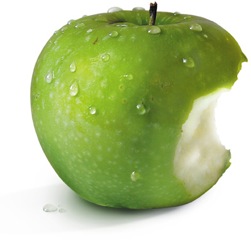- Take time out and focus on being relaxed and calmly present at mealtime.
- Chew, chew, chew!
- Minimize fluid intake at meals. Stick to only small sips of water and avoid other beverages.
- Consume high-quality protein, not soy, cooked as minimally as possible (except, of course, chicken and pork) in small to moderate quantities at mealtime.
- Avoid combining proteins with starches and sugars, even fruit, at mealtime. Stick to fibrous, nonstarchy vegetables and greens.
- Test for gluten sensitivity if you know you have any digestive or gallbladder issues.
- Consider the incorporation of quality lacto-fermented foods and raw cultured vegetables with meals. These can help restore healthy bacteria and provide many enzymes that can assist in the digestive process. They are especially helpful when one is eating a lot of otherwise cooked and denatured foods. They are also delicious.
- Do not fear naturally occuring fat or get suckered into following a low-fat diet. Remember, we are designed to eat fat, and a significant amount of it. This is why we have a gallbladder in the first place. We're creates of the ice age--remember? Use it or lose it.
- Avoid nonfermented soy. Soy contains enzyme inhibitors that can, over time, ruin your ability to digest and absorb protein. (It has also been associated with high levels of estrogens, leading to reproductive issues and other hormonal imbalances)
- Be sure to consume enough full-spectrum, unrefined sea salt (such as Celtic or Himalayan sea salt) as low-carbohydrate diets tend to result in sodium losses that can commonly contribute to constipation issues.
Source: Primal Body-Primal Mind, Nora Gedgaudas

No comments:
Post a Comment